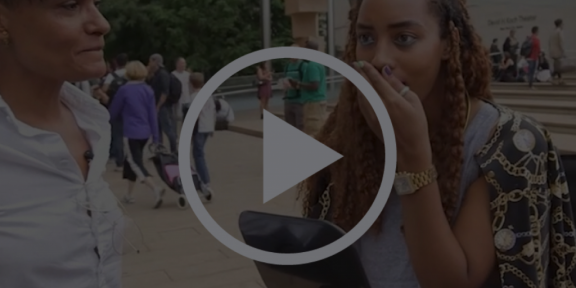Economic Empowerment: Avon Foundation And Its Beneficiaries Aim to End Financial Abuse
Avon InsiderFor victims of domestic violence, the signs are not always as obvious as a bruise or broken bone. According to the National Network to End Domestic Violence, in 98 percent of abusive relationships victims experienced financial abuse — tactics designed to limit an abuse victim’s access to assets.
Financial abuse is rooted in the aggressor’s control over a partner. Requiring a partner to turn over each paycheck or provide receipts for every purchase, imposing an unreasonable allowance or budget, or harassing the victim at his or her workplace are among the typical behaviours.
The decision to leave an economically abusive relationship can be especially complicated and painful— survivors report that one of the top reasons for staying in or returning to an abusive relationship was concern over the ability to provide for themselves and their children.
To help combat financial abuse, the Avon Foundation for Women’s Speak Out Against Domestic Violence Survivor Empowerment Program has funded 111 economic empowerment coordinators since its inception in 2010, totaling more than $6.5 million. Beauty for a Purpose spoke with some of the Program’s beneficiaries about the most pressing issues surrounding economic justice, and how they’re serving survivors.

Financial abuse and the power dynamic
“When people think about domestic violence, they think primarily of the physical abuse and are not as aware of the power dynamic that prevents a victim from leaving an abusing relationship,” says Sharon Wie, director of programs at Interval House, which runs crisis shelters and centers for victims of domestic violence in Los Angeles and Orange County. “When you are controlled financially, have children to take care of, are fearful for your life, and have no other resources, you don’t know how you would survive.”
“It can start from a very “innocent” place of, ‘Oh, I want to take care of you, you don’t have to work,’ and very quickly turn to, ‘I’m not allowing you to work,’” says Abbie Tuller, senior director of domestic violence programs at Urban Resource Institute (URI), which provides services to empower victims of domestic violence. “I’ve had a client whose partner expected her to buy groceries on $30 a week for a family of four, and if she wasn’t able to do that it often resulted in other forms of abuse.”
When a victim is ultimately able to escape this situation, often it is with destroyed credit, no resources, and crippling debts. Tuller notes, “It’s really about limiting resources. If somebody is able to control that aspect of their partner’s life, it forces the victim to be more dependent on his or her partner and further solidifies the isolation they experience in a violent relationship.”
Breaking the cycle of economic abuse
How do we put this epidemic to an end? “One of the first steps is to name these behaviors as abuse,” Tuller says of the nuances of domestic violence. “To start labeling that can be a very empowering experience.” At URI, an Avon Foundation beneficiary, domestic violence shelter residents can enroll in the Working Internship Network (WIN) program and work with financial empowerment coordinators who connect survivors with internship programs geared towards supporting survivors of domestic violence and helping them feel safe at work.
Economic empowerment matters
Survivors of financial abuse at every income level show that anyone can become a victim. For women or men in a vulnerable position, beginning to safely take financial control, investigating resources for victims of financial abuse, and consulting with an advocate are the steps toward a more empowered future.
“The biggest message our team strives to convey is that there is hope and help for victims and survivors who feel they have no way out,” Wie states. “There are laws that protect victims of domestic violence and specialized programs that are designed to help survivors become self-sufficient. That is what we are here for.”
For more information on programs that support victims of domestic violence, visit AvonFoundation.org.


